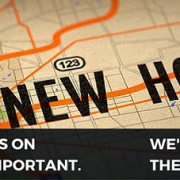Advice for First-Time Homebuyers
Which is better, to buy or to rent? Many young adults agonize over this question because the answer depends on many different factors. One’s credit score, access to a lump sum of money for down payment, debt to income ratio, job stability, and geographic location should all be taken into consideration. Born between the years of 1981 and 2000, millennials make up the largest segment of the country’s population, and most of them are in the process of figuring out the “rent vs. buy” dilemma. With the shortage of smaller, affordable housing driving up the cost of rent and prices of houses, young adults are at a significant disadvantage when searching for living accommodations. On top of that, ever-increasing costs of college tuition further inhibit their abilities to properly save up for a home.
All of that being said, buying your first house is not an unfathomable accomplishment, though it will require some careful preparation. Furthermore, as much as we are constantly told about the importance of building equity in a house, even with planning and saving, timing is not always right. Here are some things to consider before you make your decision:
- How long will you live there?
Besides the obvious costs of monthly mortgage payments and the down payment, unless you are planning on sticking around for seven years or longer, renting will be a more fiscally sensible option. The costs of purchasing a new house and then selling within the seven-year threshold will render purchasing a house less beneficial than renting. If you are planning on living in the house for some time and then move elsewhere and rent it out, you must consider whether it would be worthwhile to manage that relationship from a distance.
- Down payment
Although you would ideally aim for a 20% down payment, that number is by no means a requirement. It would get you a better interest rate and monthly payments, but a fifth of a house is a large portion of equity that few people could afford. Regardless of whether you put 10% or 20% down, you will be required to produce some large sum up front. The two percent of millennials that have been fortunate enough to buy a house already put down an average of 7% of the house’s purchase price.
- Credit Score
Credit scores can be tricky for young people because simply paying your bills on time is not enough. Banks tend to favor lengthy credit histories and if you have not started building your credit early, you might be at a disadvantage. If your FICO score is not up to par, you might want to do some planning to get your credit score as high as you can before committing to a purchase. Just like a bigger down payment, a better credit score will get you better interest rates and smaller monthly payments. A score above 750 will put you in the elite and eligible for the best rates. If you have anything below a 650 and you manage to get approval, you will be stuck with a hefty interest rate.
- Minimize debt
Paying off loans significantly undercuts the amount of money you could otherwise be saving for a down payment. People who were fortunate enough to graduate from a four-year college without taking out any student loans typically need about five years to save up for a down payment. That’s nearly half the time it takes to save up for a down payment for their peers who are saddled with student debt.
- Hidden costs
Finally, once you save up enough money for a down payment and bring up your credit score to where you can secure a loan, don’t forget about the potential hidden costs of buying your first home. Those include closing costs and taxes, as well as the possibility of homeowners’ association fees. If you are buying a previously-owned home, you should make sure that the house is up to code, that no illegal additions to the house have been made, and that there are no necessary repairs that you would have to make to stay compliant.
It’s important to remain patient if you are trying to save up for a down payment and to do your due diligence in research if you are getting ready to buy. A first-time home purchase can be a stressful event, as well as an incredibly rewarding accomplishment.
If you have any questions or would like assistance with your real estate purchase, contact us at info@walkertitletn.com, call 423-727-0207 or visit www.walkertitletn.com .



